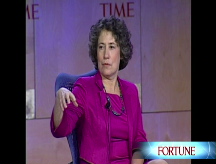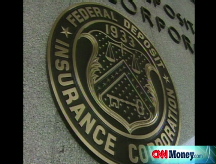Investors to buy IndyMac - $13.9B
Failed lender will cost FDIC $8.5 billion to $9.4 billion in one of costliest bank collapses ever. Players include computer mogul Michael Dell and financier George Soros.
NEW YORK (CNNMoney.com) -- The Federal Deposit Insurance Corp. announced Friday that it had struck a deal to sell failed mortgage lender IndyMac to a group of private investment firms for $13.9 billion.
The buyers include buyout specialist J.C. Flowers & Co. and hedge fund Paulson & Co., which focuses on distressed assets, as well as the private investment firm managing computer mogul Michael Dell's fortune and a fund managed by financier George Soros.
The Pasadena, Calif.-based bank will be controlled by IMB Management Holdings, led by Steven Mnuchin, who is chair and co-chief executive of Dune Capital Management. Terry Laughlin, who headed Merrill Lynch Bank & Trust, will serve as chief executive of IndyMac.
The investors could not be reached for comment.
IndyMac's failure, one of the largest in U.S. history, will cost the FDIC between $8.5 billion and $9.4 billion, in line with the agency's previous estimates. The transaction is expected to close sometime in the next three months.
The bank, which specialized in Alt-A loans made to borrowers who did not need to verify their income or assets, collapsed in July after defaults skyrocketed and depositors made a run on the bank.
The buyers will inject $1.3 billion in capital into the bank. The FDIC has also agreed to share the losses on a portfolio of loans, mainly mortgages, with IMB Management. The buyers will take responsibility for the first 20% of losses, and the FDIC will cover the majority of additional losses.
"We have assembled a group of experienced private investors in financial services to acquire the former IndyMac and operate it under new management with extensive banking experience," said Mnuchin. "At closing, we will inject significant private capital into IndyMac so that it can once again effectively serve its customers and communities."
In order to receive the FDIC's loan loss protection, IMB Management has agreed to continue the streamlined loan modification program FDIC Chairman Sheila Bair put into place.
IndyMac, in an effort to help troubled homeowners who qualify, is adjusting mortgage payments to no more than 38% of a borrower's monthly income by reducing the interest rate or stretching out the length of the loan.
Bair, a vocal advocate of streamlined modifications, has long urged the Bush administration to do more to prevent foreclosures. The Obama administration and Congress are expected to put in place an aggressive loan modification program after the new president takes office on Jan. 20.
So far, more than 8,500 mortgages have been modified and another 9,480 workouts are underway, according to the FDIC. A total of 46,500 mortgages are eligible for modification.
This is believed to be the first time private investors have led the buyout of a failed bank, according to an FDIC spokesman. However, private equity firms have participated in such purchases. For instance, private equity Kohlberg, Kravis Roberts & Co. worked with Fleet/Norstar Financial Group to buy New Bank of New England from the FDIC in 1991.
Experts expect to see more private investors scoop up failing banks in 2009. And they will likely have a lot of opportunity. There were 171 banks on the FDIC's list of troubled banks at the end of September.
Investors purchasing IndyMac also include: Stone Point Capital, a global private equity firm specializing in financial services; SSP Offshore, a private investment fund managed by Soros Fund Management, and Silar MCF-I, an affiliate of Silar Advisors.
The new bank will have 33 branches in the Los Angeles area with approximately $6.5 billion in deposits and $16 billion in loans. It will also continue servicing nearly $158 billion in mortgage loans and will maintain IndyMac's reverse mortgage business.
At the time of its collapse, IndyMac has roughly $19 billion in deposits and $32 billion in assets. It was co-founded by Angelo Mozilo, who also started Countrywide, the nation's largest mortgage lender which stumbled badly before being scooped up by Bank of America earlier this year.
The FDIC had hoped to announce the sale by year's end. In recent days, mortgage finance giant Fannie Mae said it was negotiating with the FDIC to settle a claim it has about home loans IndyMac sold to Fannie. According to reports, Fannie wants IndyMac to buy back about $1 billion of mortgages that failed to meet Fannie's standards. An FDIC spokesman said the negotiations did not impede the sale.
Of the 25 banks that have failed so far this year, IndyMac is the only one the FDIC could not immediately sell. Last month, the agency expanded the pool of bidders for failed banks by allowing those without bank charters to bid for the institutions. Bidders would need to obtain charters before the deal closes.
IndyMac was also one of the biggest banks to go under and among the costliest to the agency. Washington Mutual was larger, with $307 billion in assets, but its September failure did not cost the FDIC a dime. WaMu was immediately acquired by JPMorgan Chase (JPM, Fortune 500) for $1.9 billion. ![]()




